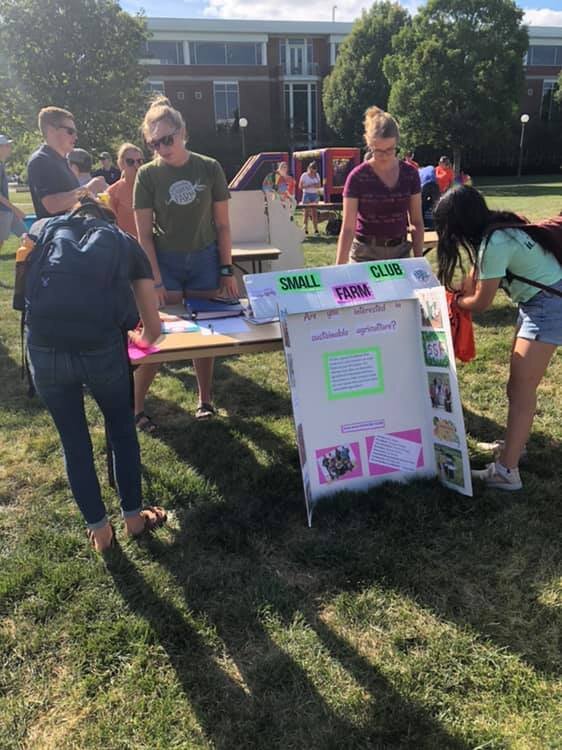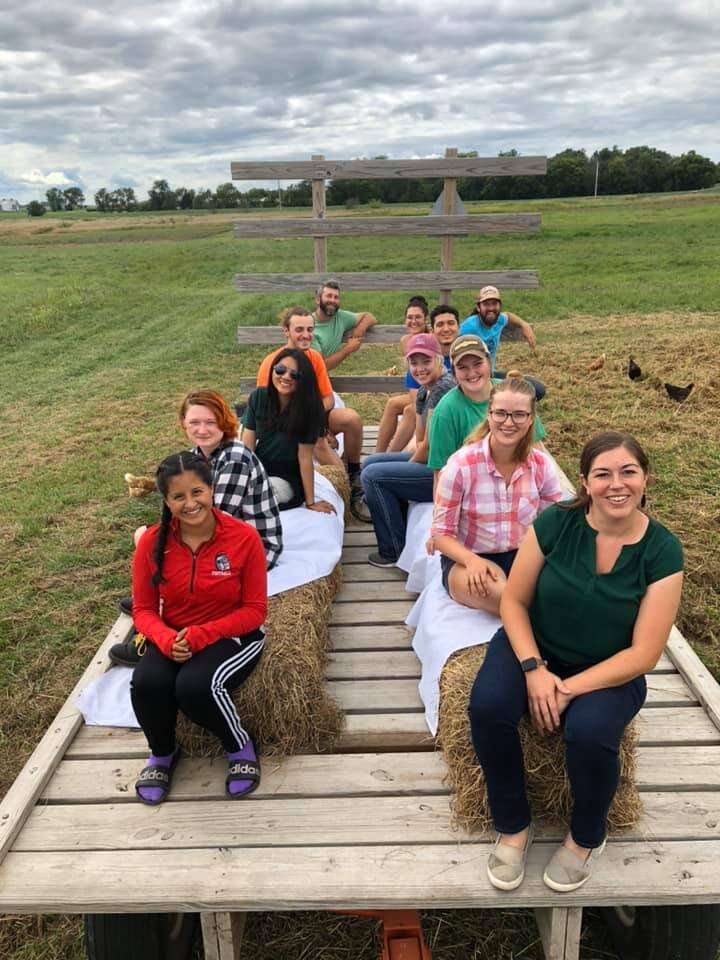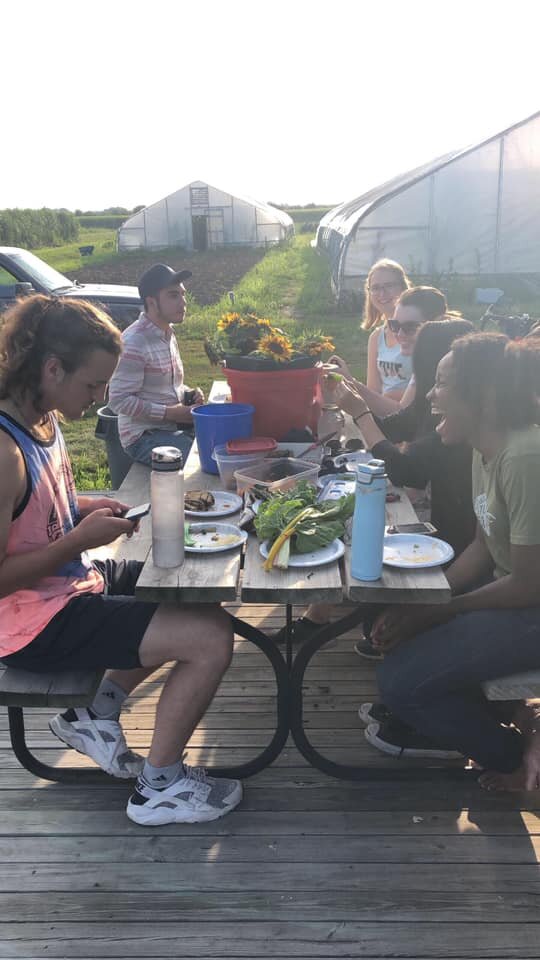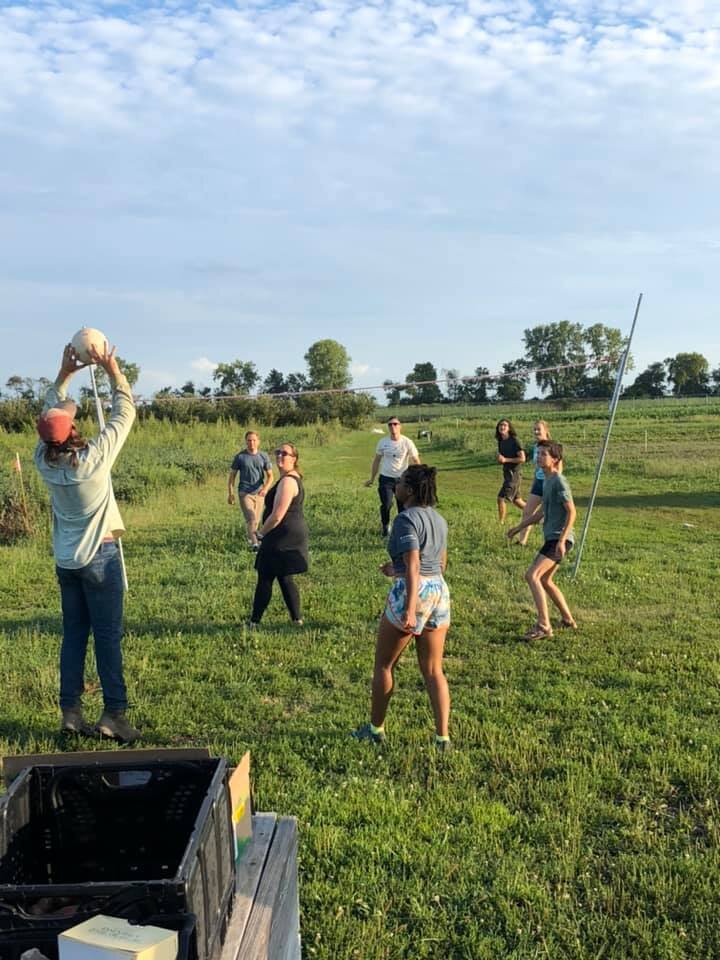- We operate year-round on 6 acres of seasonal field production and 9,000 square feet of year-round high tunnel production.
- We grow over 30,000 lbs of high quality, locally grown fruits and vegetables for the campus dining halls every year.Common Questions
WHERE IS THE FARM?
South of the intersection of Lincoln Ave and Windsor Rd. on the gravel road. There is a purple sign on the left and gate to your left. Here’s a map.

CAN I VISIT OR VOLUNTEER AT THE FARM?
YES!! We consider education and volunteer opportunities part of our mission here at the farm. If you would like volunteer, sign up here, during the school year, or email us during the summer at uiucssf@gmail.com . Visitor hours are Monday through Friday, 8am-12pm and 1pm-4pm . To set up an organized visit for a class, organization, or community group, please email uiucssf@gmail.com. We also have an internship every summer for students to work on the farm and gain more experience with sustainable farming!
CAN I BUY PRODUCE GROWN ON THE FARM?
YES!!! We sell our produce on the quad behind the Union 11 am- 4mp every Thursday June through October. We also have an online store from May through August. The online store opens on Fridays at from 4 pm and closes each week Wednesday 8 am so that we can have everything harvested an washed for Thursday pickup from 12 pm to 5 pm.
http://thefarmstand.illinois.edu
CAN I GET FREE PRODUCE FOR VOLUNTEERING?
If you come on a harvest day, culled produce (not marketable quality, but totally usable and delicious) will be available to take home. If you are interested in produce when you come, feel free to ask us, we can see what might be available.
WHAT MAKES THE FARM SUSTAINABLE?
Our farm is always working to improve the ways that it can reduce it’s impact on the environment. We grow low input, healthy, high flavor foods for our campus community. This lowers the food miles for some of the food served in the dining halls and cooked in the kitchens of our customers. We make great efforts to produce the ~45 crops we grow while caring for the ecosystems on the farm. We are primarily focused on improving the soil productivity, the soil biology but are also interested in creating habitat on the farm for birds and beneficial insects. We use cover crops to fix nitrogen in our soils and we have been able to slowly building up carbon in our soil over time which has innumerable benefits to the ecosystem and the farm . We grow a large variety of crops which allows us to rotate our crops; improving soil health and as an integral part of our integrated pest management system. This strategy helps us use the fewest organic insecticides that we possibly can use on the farm and allows us to avoid fungicides and herbicides completely.
We have been trying to reduce our use of tillage on the farm, transitioning parts of the farm to no-till which reduces the impact on the soil biology and soil organic matter. We have also been collaborating with Dr. Athey and Dr. Ugarte to study organic no-till farming strategies and their impact on soil biology, insect communities, and vegetable yields over time. We plant native plant pollinator strips around the farm to create habitat and flowering plants for pollinators and beneficial insects. We are also selling these pollinator plants so people can put these beautiful native flowering plants in their yards!
IS THE FARM AN ORGANIC FARM?
The farm is not a USDA Certified Organic farm; however, we grow our vegetables using USDA Organic practices.
This means we:
- Use no synthetic fertilizers, pesticides, treated seeds or GMO crops
- We primarily use cover crops and crop rotations to keep our soil healthy. If we use fertilizers they are sparingly used and would be certifiable in the organic rules i.e. soy meal, blended/fermented fish fertilizer (made from invasive carp) and composted manure.
- Only use insecticides allowed in Organic production and these as minimally as possible. By weight 85% of our crops are never sprayed with anything and the other 15% are usually sprayed only once with an organic insecticide when it is most desperately needed. We also spray no herbicides or fungicides of any kind.



